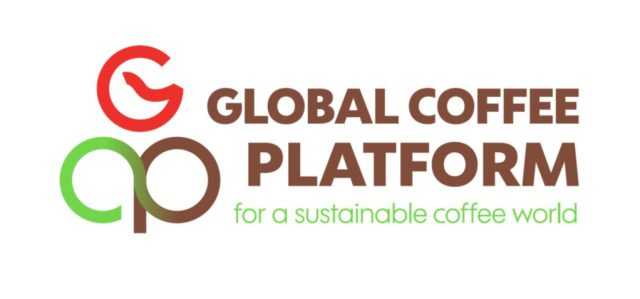BONN, GERMANY – The Global Coffee Platform (GCP) has released a revised version of the GCP Equivalence Mechanism, an innovative building block to support the continual increase of coffee purchased that is produced following baseline principles and practices of sustainability across the industry.
The revised Equivalence Mechanism (EM) was launched during an online event in conjunction with the International Trade Centre (ITC), which comes onboard as an implementation partner for the assessment of sustainability schemes that wish to be recognized as a credible and following at least baseline practices of sustainability.
The revised version of the GCP Equivalence Mechanism
“We’re delighted to release the newly-revised Equivalence Mechanism and announce the partnership with ITC. This milestone follows broad public consultation with representatives across the coffee value chain, sustainability schemes, and civil society earlier this year. With sustainability becoming a license to operate and a variety of schemes in the market, the EM fosters transparency and sector alignment at the global and local level. Our partnership with ITC enables the scale up of our work and assures the integrity of the recognition process,” said Annette Pensel, Executive Director at GCP.
Ensuring schemes meet the Coffee Sustainability Reference Code
The EM is a framework developed by GCP to assess whether a scheme can be considered equivalent to the Coffee Sustainability Reference Code (Coffee SR Code), a sector-wide reference on the foundations of sustainability in economic, social and environmental dimensions for green coffee production and primary processing worldwide. GCP’s Equivalence Process evaluates whether a sustainability scheme meets both the Coffee SR Code and a set of operational criteria (including governance, standard-setting, assurance, data and claims requirements). This helps to ensure that recognized sustainability schemes have a credible and effective system for implementation.
Aligning efforts and using a common language allows the coffee sector to better understand sustainability and identify which schemes meet at least baseline practices of sustainability in a credible and effective manner.
“ITC is very pleased to leverage its Standards Map global database to facilitate the assessment of sustainability schemes that wish to be recognized under the revised EM of GCP. As a neutral broker of information on sustainability schemes, ITC has over 10 years of experience of successful partnerships to promote best practices on sustainability through enhanced transparency, comparability, and common language. Our partnership with GCP builds nicely on our mission to support sustainable trade practices and to ensure the integrity of the GCP recognition process,” said Joseph Wozniak, Head Trade for Sustainable Development at ITC.
GCP Baseline Coffee Code
As an innovative building block, the EM forms part of the annual GCP Collective Reporting that allows roasters and retailers to disclose transparently their sustainable coffee purchases, show their progress and take a leadership role in the drive for coffee sustainability.
“To achieve prosperity for more than one million coffee farmers by 2030, sustainable coffee production and sourcing can be a force for good. We look forward to scaling collective action for farmers’ prosperity through sustainable coffee with GCP Members and Country Platforms in Latin America, Africa and Asia.” said Pensel.
Until this revision, GCP had assessed the different sustainability schemes against the principles and criteria in the GCP Baseline Coffee Code (predecessor to the Coffee Sustainability Reference Code) and the operating practices that schemes should have in place to be considered credible and effective for their recognition under the Equivalence Mechanism 1.1 or 1.2. Depending on their assurance model they are classified as GCP Baseline Coffee Code equivalent 2nd Party or 3rd Party.
What does it mean to be Equivalent 2nd or 3rd Party?
2nd Party assurance is often referred to as verification and 3rd party assurance is often referred to as certification. The main difference between these two levels of assurance is that 3rd Party assurance includes the oversight of an external body in all assurance activities of the organization that owns the scheme, this includes but goes beyond third-party audits at farm level.
All schemes that have been recognized to date, will need to submit their scheme for reassessment under the EM 2.0 and go through the Equivalence Process latest by 2 November 2023.
For more informations click here.
















